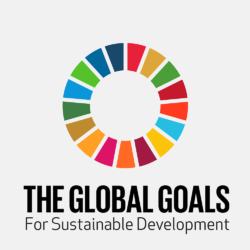
Why the SDGs Need Social Sustainability

We’ve already looked at economic sustainability and environmental sustainability, which means there’s only one pillar left. The final pillar of sustainability? Social.
Social sustainability is probably the hardest to clearly define, but its importance cannot be brushed aside. Operating on a similar plane to human rights it ensures our societies operate in ways that allow us to grow and thrive as a species.
Living in a great developed country like Canada we may not spend a lot of time thinking about social sustainability despite the fact that it is woven into our very lives.
Given this privilege we should be standing up and doing what we can to ensure everyone around the world has access to the social sustainability we enjoy. At the same time we should be working to improve our level of social sustainability.
Let’s first look at social sustainability at a cultural level.
Perhaps the best way to measure social sustainability in a society or culture is to look at the level of equity. How balanced is the scale in terms of race/sex/class/ability, etc.? Is it set up so all residents can fully function?
It is possible to create a community with a high level of social sustainability. With the right infrastructure and the proper social supports a community can be built in a way that allows everyone to reach their peak productivity levels.
In fact the Federation of Canadian Municipalities (FCM) even awards the best examples with the Sustainable Communities Awards, promoting the places that have gone above and beyond to create a sustainable living environment.
Social sustainability is equality and we should be doing everything we can to ensure the communities in which we live meet the needs of its residents.
It is very important that our cultures act in a way that promote social sustainability, but we should be pushing for more. We have to make sure our businesses and our marketplace also operate at this level.
Rather than blindly seek out profit, throwing out depleted workers along the way, modern businesses should be operating in a way that promotes and improves quality of life.
One major area that can use an upgrade is the employment sector. For those working in roles on the bottom rung there is little chance of advancement—either in job title or salary. These lower-end jobs also lack benefits and have high turnover. Add in the stress of (sporadic) contract employment and you can see why many of today’s workers are stressed.
If we switched instead to what Zeynep Ton calls “the good jobs strategy” we can radically improve our employment and business world. A marketplace in which businesses invest in their employees is what we need to be the norm if we want to live in a world with social sustainability.
Beyond just following the good jobs strategy businesses can do their part through initiatives like daycare and health care.
Everyone deserves to live and work in a place with social sustainability. It’s the best way to ensure a healthy future for ourselves and future generations. The question then becomes: how do we help businesses move this way, making it easier for all of us to make the shift?
Enter the Canadian Business for Social Responsibility (CBSR). This initiative was set up to help businesses learn how to transform themselves into sustainable entities.
Highlighting what it calls the Transformational Company and the Transformational Company Qualities CBSR helps companies pinpoint where they need to go and what they need to do to improve their sustainability and CSR levels.
Proudly Canadian, the company urges the marketplace to “do business like a Canadian” and stresses a belief that adopting Canadian values will radically improve the business world.
If the idea takes hold we may see a glimmering new sustainable marketplace in the coming years. I’m keeping my fingers crossed.
Social sustainability may be the black sheep or misunderstood loner of the sustainability circles but its importance really can’t be brushed aside, especially when looking at our quest to reach the UN 2030 Agenda.
Sustainable development goals 1 (no poverty), 3 (good health and well-being), 4 (quality education), 5 (gender equality), 8 (decent work and economic growth), 10 (reduced inequalities), 11 (sustainable cities and communities) and 16 (peace, justice and strong institutions) all directly link to social sustainability.
We can achieve social sustainability. It’s something we both need and deserve. Let’s work together to make it happen.

